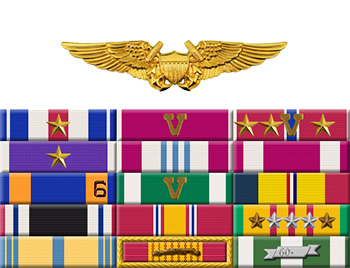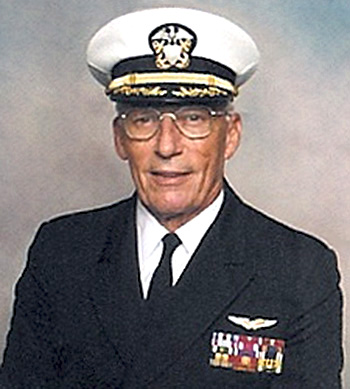
|
Larry H. Spencer |
 |
|||
| Rank, Service | ||||
Commander O-5, U.S. Navy |
||||
| Veteran of: | ||||
|
||||
| Tribute: | ||||
Larry Spencer was born on May 12, 1940, in Wichita, Kansas, and grew up in Earlham, Iowa. After completing his bachelor's degree in Mathematics at Parsons College in 1962, he joined the Naval Aviation Officer Candidate Program on February 23, 1963, and was commissioned an Ensign in the U.S. Navy on June 21, 1963. Ens Spencer next completed Naval Aviation Observer training at NAS Pensacola, Florida, followed by F-4 Phantom II Replacement Air Group training with VF-121 at NAS Miramar, California. His first assignment was as an F-4 Radar Intercept Officer (RIO) with VF-92 at NAS Miramar, and deployed aboard the aircraft carrier USS Ranger (CVA-61) from August 1964 to May 1965, and aboard the aircraft carrier USS Enterprise (CVAN-65) from October 1965 until he was forced to eject over North Vietnam and was taken as a Prisoner of War on February 18, 1966. After spending 2,552 days in captivity, LCDR Spencer was released during Operation Homecoming on February 12, 1973. He was briefly hospitalized to recover from his injuries, and then attended the U.S. Naval Postgraduate School at Monterey, California, from August 1973 to March 1976. After attending F-4 Replacement Air Group training, CDR Spencer served as Admin Officer with VF-21 from November 1976 to December 1977. His next assignment was on the staff of the Chief of Naval Operations in the Pentagon from December 1977 to June 1982, followed by service as a Senior Systems Analyst with the Europe and Pacific Forces Division in the Office of the Director, Program Analysis and Evaluation, on the staff of the Secretary of Defense in the Pentagon from June 1982 until his retirement from the Navy on March 1, 1985. Larry Spencer died on May 21, 2022, and was buried at the Iowa Veterans Cemetery in Van Meter Township, Iowa. |
||||
|
||||

